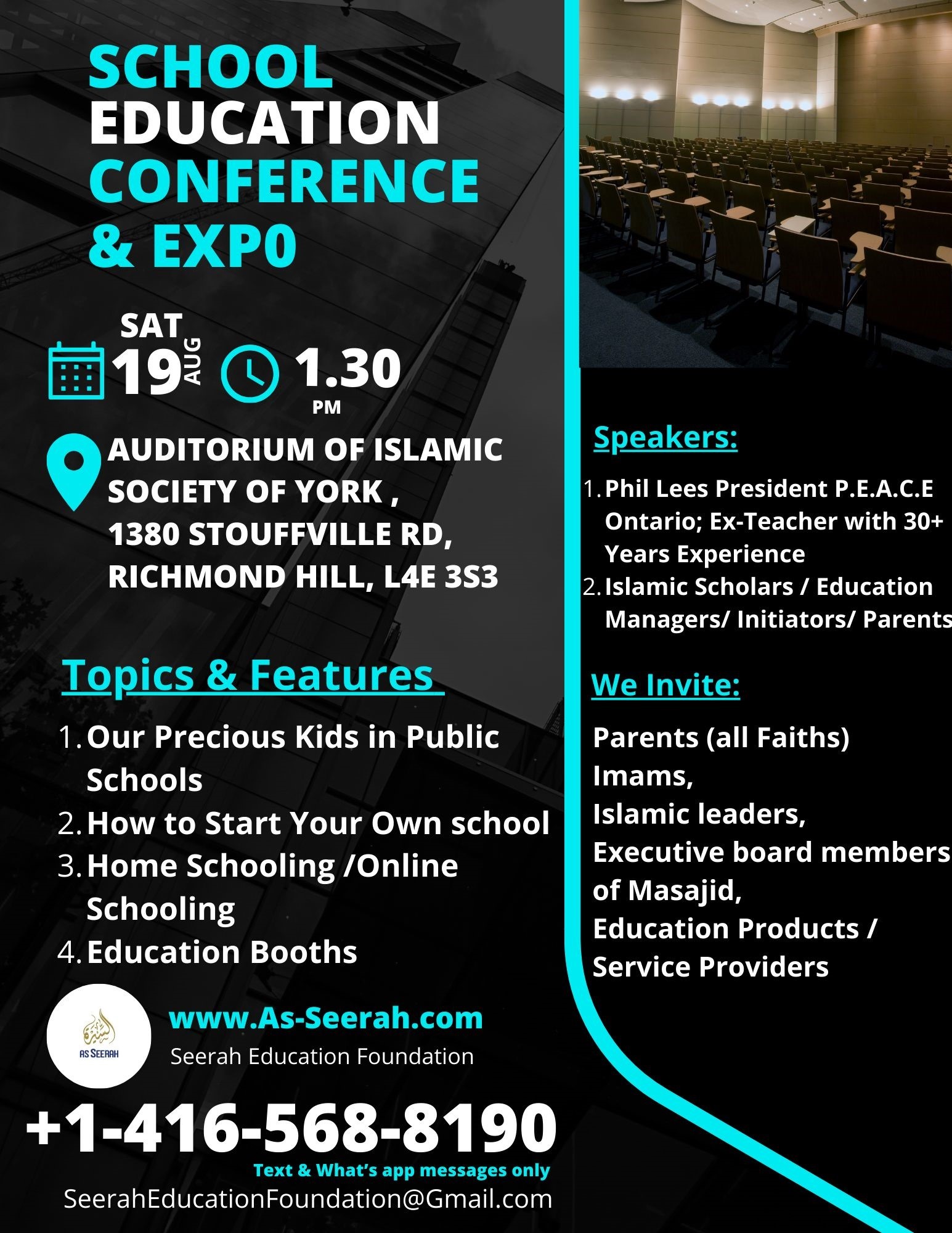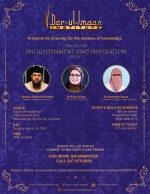JAWED ANWAR
First Published: Muslims Weekly, Issue No. 218, May 7, 2004
[This is a series of columns for the understanding of the history of Madrasa and Islamic Education System in Muslim India (South Asia) published in the Muslims Weekly, New York, USA, in the columns of "Personal Notes" by Jawed Anwar.)
THE student is the central part of the Islamic education system. It is the students' responsibility to acquire compulsory education. As a vicegerent of Allah, human beings have to play a significant role on this earth to establish and maintain peace and justice, among other things.
Muslims have an additional role to play; "You are the best community ever raised for humanity—you encourage good, forbid evil, and believe in Allah." (Al-Qur'an 3:110).
Education that provides knowledge of "what is right" and "what is wrong" and gives the wisdom and power to establish the "good' and forbid the 'wrong" is compulsory for Muslims. On their journey to education, students should face difficulties with perseverance and resolve. In Islam, there are no age limits in gaining knowledge; it is a lifelong process, from birth to death.
Prophet Muhammad (PBUH) often prayed, "My Lord! Increase me in knowledge." (Surah Taha 20:114)
Acquiring education was never an easy task. In both old and modern times, it was a bed of thorns. There are many hindrances: internal, external, psychological and otherworldly matters. Satan always works to divert the attention of a student.
Only the attachment and love with Allah, strong willpower and an iron commitment can help the student overcome the Satanic designs.
The Prophet (ï·º) said: If anyone acquires knowledge that should be sought seeking the Face of Allah, but he acquires it only to get some worldly advantage, he will not experience the arf, i.e. the fragrance, of Paradise.
-Sunan Abi Dawud 3664
To acquire the pure and required knowledge, one must be obedient to Allah. Imam Al-Shafiʽi said that "I complained Imam Waki (Waki ibn al-Jarrah) about my short memory; he advised me to abstain from sins and said the knowledge is the light of Allah and disobedient can't get the divine light."
"Most of the scholars of Islam advised students to purify their purpose of education, make a commitment to Allah, and pray to succeed in acquiring knowledge. The Messenger of Allah (ï·º) said, "He who goes forth in search of knowledge is considered as struggling in the Cause of Allah until he returns."
-Tirimdhi, Ref. Riyad as-Salihin 1385.
Abud-Darda (May Allah be pleased with him) reported:
The Messenger of Allah (ï·º) said, "He who follows a path in quest of knowledge, Allah will make the path of Jannah easy to him. The angels lower their wings over the seeker of knowledge, being pleased with what he does. The heavens and the earth's inhabitants and even the fish in the oceans' depth seek forgiveness for him. The learned man's superiority over the devout worshipper is like that of the full moon to the rest of the stars (i.e., in brightness). The learned are the heirs of the Prophets who bequeath neither dinar nor dirham but only that of knowledge, and he who acquires it has acquired a large portion."
-Abu Dawud and At-Tirmidhi, Reference: Riyad as-Salihin 1388.
Abu Hurairah (May Allah be pleased with him) reported:
The Messenger of Allah (ï·º) said, "Allah makes the way to Jannah easy for him who treads the path in search of knowledge."
[Sahih Muslim, Reference: Riyad as-Salihin 1381].
These concepts of great rewards left no excuse for anybody to say that since they do not have a teacher or Madrasah in their city or town, they cannot learn Qur'an and Hadith. No! There is no excuse. You must take this hardship and overcome it to learn the mandatory knowledge to all; Farde Ain.
If you learn the history of Muhaddesin (collector and compiler of Hadith, sayings of Prophet Muhammad — PBUH), these people travelled hundreds and thousands of miles to meet and get Hadith from persons who remember Hadith. In general, they spent twenty years of their life on the journey only to seek knowledge.
I can give many examples of dedicated students from Islam's history who faced extreme hardships seeking knowledge.
However, I am giving here only two examples from the nearest history (twentieth century):
1. Allama Shibli Nomani (1856-1914) was a great scholar of Islam of India of his time and author of a famous book on the biography of Prophet Muhammad (PBUH), "Seerat Un Nabi." After completion of his formal education, he seeks to learn Arabic literature. Maulana Faiz ul Hasan Saharanpuri, a teacher of Oriental College, Lahore, was a famous Arabic poet and literary person. Shibli Nomani requested him to teach Arabic. Maulana Faiz excused that he had no time other than his time walking from home to college every day. His college was at a distance of two miles from his home. The enthusiastic student accepted this offer (time). Every day Shibli would reach the house of Maulana Faiz and walk with him to his college. During this walking time, he was taking Arabic language lessons. No matter the sizzling summer or chilly winter or stormy rain, Shibli maintained steadfastness and punctuality in attending his "walking class" for several years and finally completed his Arabic language/literature.
2. Syed Abul A'la Maududi (1903-1979), a great and world-renowned scholar of Islam, asked Maulana Abdus Salam Khan Niazi, a prominent scholar Maaqoolat (Rational knowledge; Philosophy and Logic), to teach the subject.
Maulana Niazi, who had no time but couldn't refuse Mawdudi due to his respectable family background, asked him to come at dawn and finish the lesson before Fajr prayer (the prayer before sunrise) if he could do so. It was an extremely challenging condition and next to refusal. But the zealous student accepted this challenge. Syed Maududi had been attending his class for a long time. He had been finishing his lessons before the Fajr prayer and completed the subject knowledge.
-Examples reference: Hind wa Pak mein Musalmanon ka Nizam e Taleem o Tarbiyat (Urdu), by Professor Syed Muhammad Saleem (b. 1920, d. 2000).
The importance of learning for students gave them a sense of high respect for their teachers. After the Creator (Allah) and parents, teachers received the highest regard for everyone. Students did their best and put in a lot of effort to please their teachers.
Making teachers angry meant the invitation of Allah's anger, and a student seeking the mercy of Allah couldn't afford it. A teacher, Maulana Abdul Haq Khairabadi (1898), once became angry with Hakim Barakat Ahmed Tonaki (1928). It took Hakim Barakat two years to please the strict teacher. He finally pleased him and returned as his student.
(Jawed Anwar can be reached at seerahwest@gmail.com)
Subscribe E-Letter:
AsSeerah+subscribe@groups.io
Twitter:
https://twitter.com/AsSeerah
Facebook:
https://www.facebook.com/Asseerah






